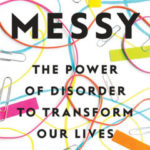 In Nonsense: The Power of Not Knowing, Jamie Holmes writes:
In Nonsense: The Power of Not Knowing, Jamie Holmes writes:
Automation and outsourcing will require tomorrow’s workers to be more innovative and creative. Success or failure, as Harvard economist Lawrence Katz recently put it, will hinge on one question: “How well do you deal with unstructured problems, and how well do you deal with new situations?” Jobs that can be “turned into an algorithm,” in his words, won’t be coming back. “What will be rewarded,” Katz told me, “are the abilities to pick up new skills [and] remain attuned to your environment and the capacity to discover creative solutions that move beyond the standard way of doing things.”
Just as workers today must learn to adapt to the unknown, tomorrow’s workforce has to prepare for it. Miguel Escotet, a social scientist and education professor, has framed the argument well. Schools should “educate for uncertainty,” he said, simply because for many students, “it is almost impossible to know what will happen by the time they will join the job market.” For Escotet, educating for uncertainty involves helping students be flexible, self-critical, curious, and risk-embracing — the very capacities that tend to disappear when anxiety gets the better of us. Similarly, entrepreneurs cannot innovate without the ability to dwell calmly among multiple unknowns. Being able to handle ambiguity and uncertainty isn’t a function of intelligence. In fact … this ability has no relationship whatsoever to IQ. It is, however, an emotional challenge — a question of mindset — and one we would all do well to master. Today’s puzzle is to figure out what to do — in our jobs, relationships, and everyday lives — when we have no idea what to do.




